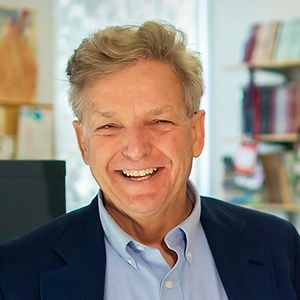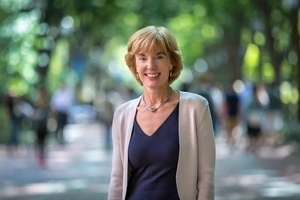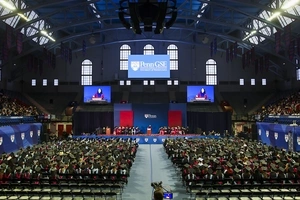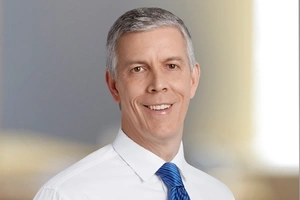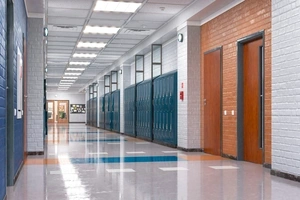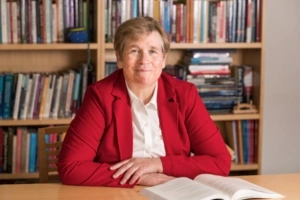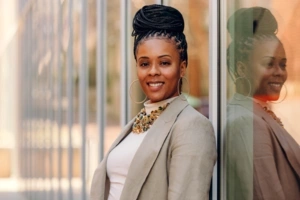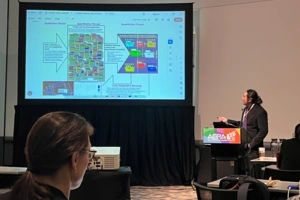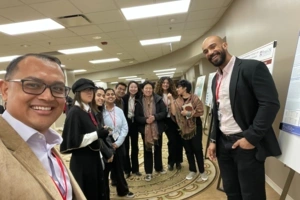Faculty Expert
-
Richard M. Ingersoll
Professor of Education and Sociology
As schools across the nation grapple with the challenges of hiring and retaining teachers, a new study led by renowned researcher Richard Ingersoll (University of Pennsylvania Graduate School of Education) and Lennon Audrain and Mary Laski (both of Arizona State University) sheds light on an innovative approach that could help address this crisis. Conducted by ASU’s Mary Lou Fulton Teachers College, in collaboration with the Center on Reinventing Public Education, the study focuses on teacher turnover rates of team-based staffing along with teacher decision-making authority in schools, and how these factors could offer solutions to the ongoing nationwide teacher shortage.
The traditional classroom model, where one teacher instructs a large group of students in isolation, has been a staple of the education system for over a century. However, this model has faced criticism for its inability to meet the diverse needs of students and the high levels of teacher dissatisfaction and turnover it often causes.
The Next Education Workforce (NEW)™ initiative rethinks traditional classroom models. In 2018, in partnership with a surrounding school district near ASU, NEW implemented a new model of team-based staffing. NEW offers a transformative approach by integrating teams of teaching staff who share a roster of students and multiple learning spaces. These teams collaboratively plan instruction, with each member taking on different roles and responsibilities. This model aims to enhance student engagement and learning by allowing for more personalized, student-centered teaching. Additionally, the program incorporates student and beginning teachers and provides professional development and collaborative planning activities. It has since spread to over 150 schools in a half dozen school districts in Arizona, California and other states.
The study, spearheaded by Ingersoll, a recent Arizona State Visiting Research Professor, alongside Lennon Audrain and Mary Laski, both Research Assistant Professors at ASU, evaluates the Next Education Workforce (NEW) initiative.
“Throughout my career, it has been clear that allowing teachers a professional-like authority in regard to school decisions that impact their work, can be crucial, and is often overlooked, for retaining teachers. We’ve learned that this authority, as part of a team-based approach, can have significant, and in this case, startling, benefits,” said Richard Ingersoll. “The old single-teacher classroom model is conducted in isolation from colleagues, which creates a ‘sink or swim’ approach that is particularly hard on new teachers—who depart the profession in costly numbers in their early years. This re-thinking of the classroom model shows enormous promise for teachers and students alike.”
Key findings
- Strengthened Teacher Retention: One of the study’s most critical findings is that teachers working within these teams are far less likely to leave their positions compared to those in traditional classrooms (11.7% vs. 21% for non-NEW teachers, compared to 16% for teachers nationally). Team-based staffing was associated with significantly reduced teacher turnover—an issue that has plagued school districts across the country.
- Elevated Decision-Making Authority: NEW teachers report higher levels of decision-making influence both in their classrooms and school-wide. This authority is linked to lower turnover rates and the study suggests that professional-like authority is a crucial factor in retaining educators.
- Supercharged Synergy Between Team Membership and Teacher Authority: The combination of being part of a collaborative teaching team and having decision-making authority resulted in the lowest turnover rates observed (6.6% vs. 22% for members with lower authority). Teachers who experienced both benefits were far more likely to stay in their schools and districts, underscoring the value of this integrated approach.
National implications
The findings of this study have implications for schools and districts across the U.S. that are struggling to hire and retain teachers. By addressing both the operational and professional needs of educators through team-based staffing and decision-making influence, the NEW initiative offers a compelling alternative to the conventional model. This approach not only provides a hopeful blueprint for creating more sustainable teaching environments but also has the potential to reverse troubling trends in teacher turnover and strengthen the educational workforce nationwide.
Read more about these findings and insights in this Educational Leadership article by Richard Ingersoll and Lennon Audrain.
About the Center on Reinventing Public Education
The Center on Reinventing Public Education (CRPE) is a research and policy analysis center focused on developing effective, equitable, and sustainable education systems. CRPE works with educators, policymakers, and communities to drive meaningful change in public education.
About the University of Pennsylvania Graduate School of Education
The University of Pennsylvania Graduate School of Education (Penn GSE) is one of the world’s leading schools in education research and practitioner preparation. Penn GSE partners with schools, universities, and communities to expand educational access—especially for those underserved by society—and, through rigorous research and innovative programs, develops new knowledge and transformational teachers and leaders in pursuit of educational opportunity. Follow Penn GSE on Facebook, Instagram, X, and LinkedIn.
Media contacts
Kat Stein / katstein@upenn.edu
Abby Jacobs / ajacob97@crpe.org

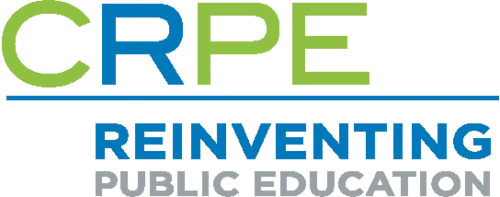
Media Inquiries
Penn GSE Communications is here to help reporters connect with the education experts they need.
